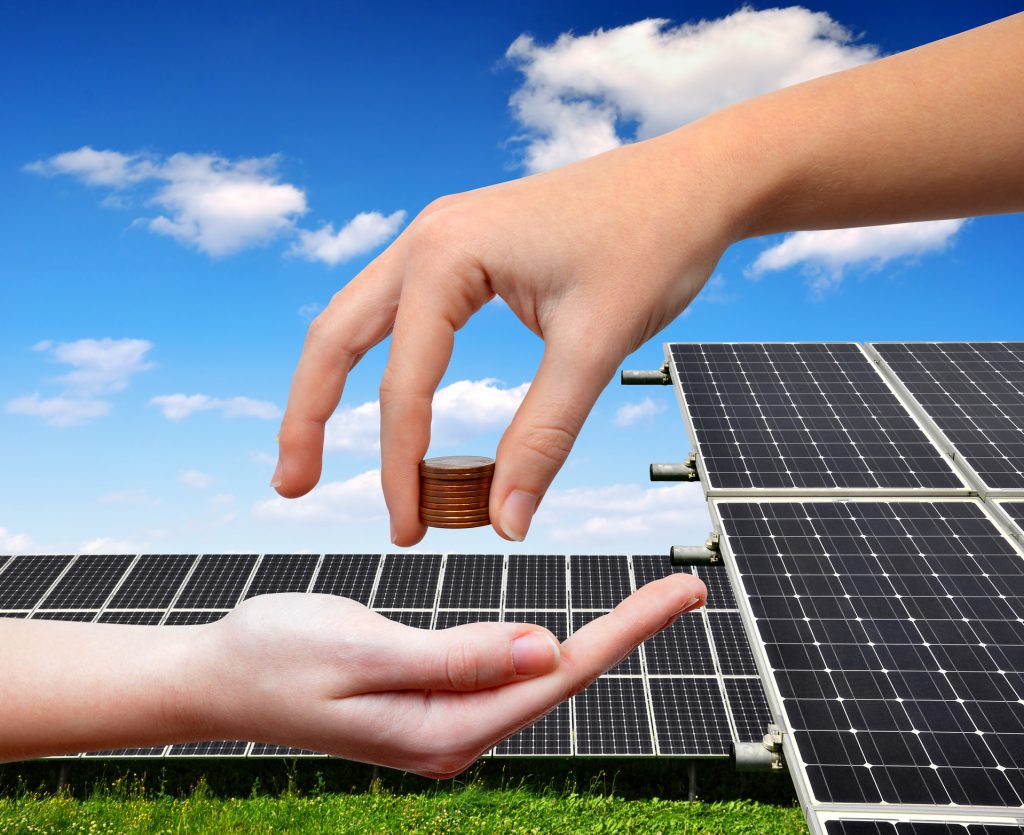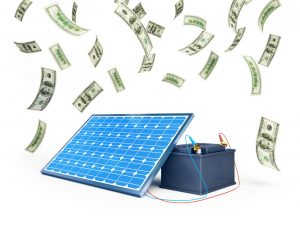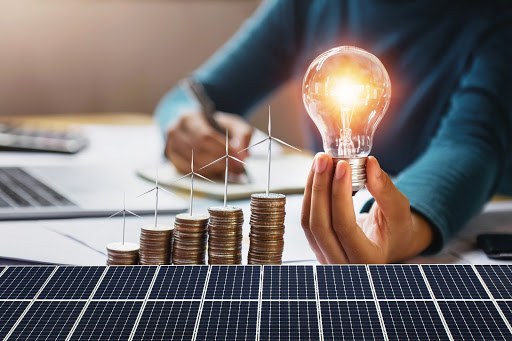Yes, we’ve said it before and we’ll say it again: Switching to solar will save you money, forever. It’s the simple truth. But how much money can you save if you get solar panels? While it varies from homeowner to homeowner, we’re happy to give you a ballpark figure so you know what to expect.
Average utility costs
Here is how much homeowners are paying for power right now: approximately $0.13 per Kilowatt hours (kWh). The national average of monthly kWh is around 900, coming out to 10,800 kWh per year. So the average is a minimum of $117 per month and $1,404 per year. Which, overall, doesn’t sound like a lot.
However, that’s just the national average. There are many areas that cost more per kWh than others. Hawaii costs the most, coming out to a whopping $0.30 per kWh. California (of course), and other states like Alaska, New Hampshire, Vermont, New York, Connecticut, Massachusetts, and even little Rhode Island averaged $0.15 to $0.20 per kWh last year. So in these states, it costs a minimum of $135 to $180 per month for power, while in Hawaii the monthly minimum is nearly $300. And that’s the lower end of the monthly kWh usage for most homes. That’s $1,620 to $2,160 minimum per year for basic electrical costs. Plus, utility charges are only going to continue to rise in the future.
Monthly savings
Let’s say you pay a bit higher than the national average and consume a little more kWh per month, too. At $0.15 per month for 1,100 kWh, your monthly bill is $165, on average. An Aurora Energy consultant recommends that you switch to a 7 kW solar panel system, or twenty-eight 250-watt solar panels. For sake of simplicity this time around, let’s say your solar panels will cover 100% of your energy needs.
If you pay the average price for solar panels (which is $2.99/watt), your solar panel system will cost $20,930. After receiving your 2020 solar tax credit, the system will cost $15,488. If you decide to pay for your system with a 15-year loan, your monthly payment will probably be about $86. So, you’re saving $79 per month off of your former utility bill! And it will stay that way for the next 15 years.
Annual savings
Now let’s calculate your potential yearly savings. In the above scenario, your former annual costs were $1,980. With solar energy, you’d spend $1,032. That’s $948 back into your pocket. And over the next 15 years, that’s a savings of $14,200. If you had stuck with your traditional utility company and your rates magically stayed the same, you’d have spent up to $29,700 in the next 15 years. However, as we said, your rates are only expected to rise, so you will be paying much more than that.
This is just one modest example of how much money you can save if you get solar panels. Are you ready to see how much money you can save by switching to solar? Contact us. We can’t wait to help you save money!




